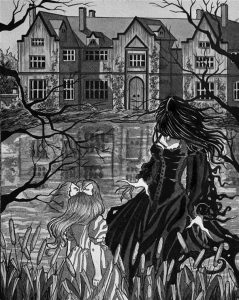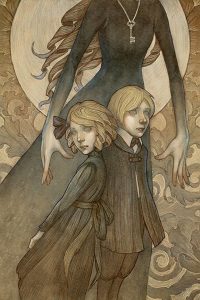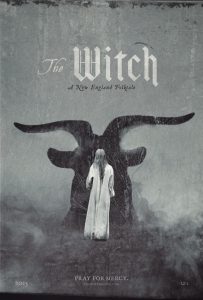Home » Genel
Category Archives: Genel
The Turn of the Screw
A Death Brought by Apathy:
Henry James’ The Turn of the Screw (1898) and Education

By Deniz Akkaya, Melis Baş and Aylin Şengezer
We consider children the future of our world and interpret their behavior as a foreshadowing of future society. We regard socially problematic adults as those who did not have an opportunity to get a proper education as children. Such people remind us the importance of education as it decently shapes the children’s perceptions, social behaviors, characteristics and their mental health. Henry James’ The Turn of the Screw is a great example for understanding the consequences of lack of education concerning social skills. Since Miles and Flora are orphans being raised in the care of their uncle by getting only financial support, they are devoid of intimate care and love. Children cannot establish healthy relations with the others as they live a rather isolated life in the Bly Manor without getting in touch with anyone but the household. One of the dialogues in the novel perfectly summaries the psychology of Miles and Flora, “If a child gives the effect another turn of the screw, what do you say to two children—?” In the story, we have two children whose worldview becomes shaped by the excruciating, painful ‘turns of the screw.’ The only feeling that these children seem to know is pain which is both dangerous for them and people around them. As we read the story, we begin to feel that the decision regarding the kinds of education children should receive must not be left solely to the discretion of their parents. Miles is one of those children who did not get a proper education both in the house and the school, and when he got expelled from school, the governess thinks the only reason for it is his aggressive behavior towards his friends. The education at stake does not only mean academic achievement; it also means learning social skills. The first education of a child starts with their parents as they considers them as role models; however, as Miles has lost both of them, he finds new and problematic role models in Miss Jessel and Peter Quint who were in an inappropriate relationship when they were alive. Their influence affects both Miles and Flora’s psychology in a bad way as both children copy Miss Jessel and Peter’s bad behaviors such as lying and cheating. Miles acts too much like an adult; he talks to Miss Jessel in a flirtatious way. He observes and copies these behaviors from Peter Quint himself who is a role model to him, and Flora constantly tells lies about where they go at nights. Miles and Flora cannot achieve their expected improvements, and establish healthy social relations due to their isolated education and not being cared about enough. The story points to the importance of getting a proper education that emphasizes social skills. Children’s right to such an education cannot be taken away from them as its absence can harm them mentally and psychically just as it happens with Miles at the end of the story.

The VVitch
Return of the Repressed:
Robert Eggers’ The VVitch (2015) and The Right to A Secular Education
By Elif Karslıoğlu, Fatma Nur Kuş and Süeda Sancaktar

The VVitch is a horror film that encapsulates the misfortunes of a puritan family in colonial America who lead a modest way of living before everything in their lives shifts drastically. At the beginning of the film, we see a man being charged and banished from society by the court for his religious beliefs. The family has to leave the colony and live inside a forest where an evil being finds them in total isolation. The family quickly becomes prey to a self-imposed tyrannical and theocratic rule. Due to their isolation from society, they begin to exhibit deficiencies in common sense and instantly believe the baseless products of their younger children’s imagination, i.e. that their daughter, Thomasin, might indeed be a witch. The entire family bar Thomasin start to dissociate from reality, becoming more and more superstitious under the influence of extreme religious beliefs. They begin to view Thomasin’s burgeoning adolescence as a sexual threat for their religion; silenced and demonized by the rest of the family, Thomasin becomes the scapegoat.
The audience witnesses the dangers of total isolation and of irrational and invasive practice of religion. As exemplified by both Thomasin and her brother Caleb, the more one is oppressed, the more they tend to act out. Repressed thoughts and emotions tend to come to light in a more deviant way. Thomasin’s situation also represents the shattered value of equality: we see the victimization of women by oppressive structures caused by rigid domestic rule. The collapse of the entire family is indeed a self-fulfilling prophecy: Thomasin has no other choice but to believe the accusations against her and join the witches. It is her family that molds her into becoming a witch by their constant oppression and by not offering her a balanced secular education.
Enriched with supernatural horror elements, this movie represents the necessity of a healthy society that upholds the value of gender equality and secular education, and is wary of the dangers of isolation, alienation and exile.

